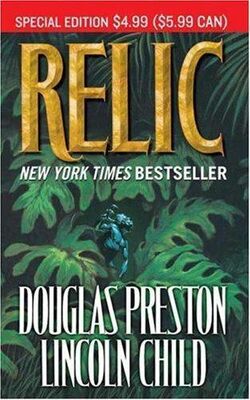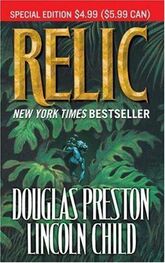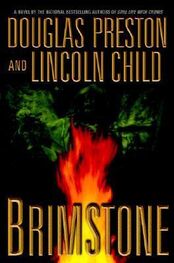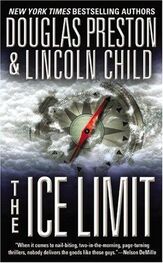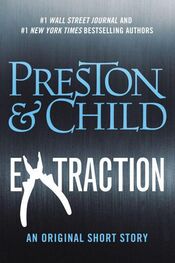Or perhaps Whittlesey was already gone when the tepui was burned. Perhaps the Kothoga had been unable to control, once again, the creature they had created. Maybe Whittlesey, in his pitiful, terrible condition, had set his own agenda, which hadn’t included sticking around as the Kothoga’s avenging angel. Perhaps he’d simply wanted to go home. So he had abandoned the Kothoga, and the Kothoga had been destroyed by progress.
But, for the most part, Kawakita was indifferent to the anthropological details. He was interested in the power inherent in the plant, and the harnessing of such power.
You needed to control the source before you could control the creature.
And that , thought Kawakita, is exactly why I’m going to succeed where the Kothoga failed . He was controlling the source. Only he knew how to grow this difficult and delicate swamp lily from the depths of the Amazon jungle. Only he knew the proper pH of the water, the right temperature, the proper light, the correct mix of nutrients. Only he knew how to inoculate the plant with the reovirus.
They would be dependent on him. And, with the genetic splicing he had done through the rabbit serum, he’d been able to purify the essential strength of the virus, engineering it to be cleaner while diminishing some of the more unpleasant side effects.
At least, he was fairly sure he had.
These were revolutionary discoveries. Everyone knew that viruses inserted their own DNA into the cells of their victim. Normally, that DNA would simply instruct the victim’s cells to make more viruses. That’s what happened in every virus known to man: from the flu to AIDS.
This virus was different. It inserted a whole array of [467] genes into its victim: reptile genes. Ancient reptile genes; sixty-five-million-year-old genes. Found today in the lowly gecko and a few other species. And it had apparently borrowed primate genes—no doubt human genes—over time, as well. A virus that stole genes from its host, and incorporated those genes into its victims.
Those genes, instead of making more viruses, remade the victim . Reshaped the victim, bit by bit, into a monster. The viruses instructed the body’s own machinery to change the bone structure, the endocrine system, the limbs and skin and hair and internal organs. It changed the behavior, the weight, speed, and cunning of the victim. Gave the victim uncanny senses of smell and hearing, but diminished its eyesight and voice. Gave it immense power, and bulk, and speed, while leaving its wonderful hominid brain relatively intact. In short, the drug—the virus —turned a human victim into a terrible killing machine. No, the word victim did not fairly describe one infected with the virus. A better word might be symbiont . Because it was a privilege to receive the virus. A gift. A gift from Greg Kawakita.
It was beautiful. In fact, it was sublime.
The possibilities for genetic engineering were endless. And already, Kawakita had ideas for improvements. New genes the reovirus could insert into its host. Human genes as well as animal genes. He controlled what genes the reovirus would insert into its host. He controlled what the host would become. Unlike the primitive, superstitious Kothoga, he was in control—through science.
An interesting side effect of the plant was its narcotic effect: a wonderful, “clean” rush, without the unpleasant down of so many other drugs. Perhaps that was how the plant had originally ensured its own ingestion and, thus, its propagation. But for Kawakita, this side effect had provided cash from which to finance his research. He hadn’t wanted to sell the drug originally, but the financial pressures he’d experienced had made it inevitable. He smiled as he thought of how easy it had been. [468] The drug had already been given a name by the select coterie of eager users: glaze . The market was avid, and Kawakita could sell as much as he could make. Too bad it seemed to go so quickly.
Night had fallen. Kawakita removed his dark glasses and inhaled the rich fragrance of the warehouse, the subtle odor of the fibers, the smell of water and dust and internal combustion from the ambient air, mingled with mold and sulphur dioxide and a multitude of other smells. His chronic allergies had all but vanished. Must be the clean Long Island air , he thought wryly. He removed his tight shoes and curled his toes with pleasure.
He had made the most stunning advancement in genetics since the discovery of the double helix. It would have won him a Nobel Prize, he thought with an ironic smile.
Had he chosen that route.
But who needed a Nobel Prize, when the whole world was suddenly there for the plucking?
There came another knock at the door.
THE END.
ABOUT THE AUTHORS
Douglas Preston, who worked for several years in the American Museum of Natural History in New York, is the author of the acclaimed nonfiction works DINOSAURS IN THE ATTIC and CITIES OF GOLD , and of the novel JENNIE . He lives in Santa Fe, New Mexico.
Lincoln Child has collected and edited numerous ghost and horror story anthologies, including DARK COMPANY and DARK BANQUET . Formerly a trade editor with St. Martin’s Press in New York, he how lives in Morristown, New Jersey.
